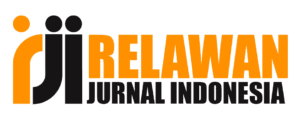Tata Kelola Pemerintah Kota dalam Perubahan Iklim: Sebuah Literature Review
Abstract
Penelitian ini bertujuan untuk menganalisis tata kelola pemerintah kota dalam menghadapi perubahan iklim melalui tinjauan literatur. Kota memiliki peran ganda dalam perubahan iklim, baik sebagai kontributor maupun pihak yang terdampak, sehingga diperlukan strategi tata kelola yang adaptif dan responsif. Penelitian ini mengeksplorasi berbagai kebijakan, inisiatif, serta mekanisme mitigasi dan adaptasi perubahan iklim yang telah diterapkan di tingkat kota. Selain itu, penelitian ini juga menyoroti pentingnya kolaborasi antara pemerintah, sektor swasta, dan masyarakat dalam membangun ketahanan perkotaan terhadap perubahan iklim.
References
Alexander, D.E. (2013), “Resilience and disaster risk reduction: An etymological journey”, Natural Hazards and Earth System Sciences, Vol. 13 No. 11, pp. 2707–2716.
Barnett, J. R., & Webber, M. (2010). Accommodating migration to promote adaptation to climate change. World bank policy research working paper, (5270).
Boyd, E., & Juhola, S. (2015). Adaptive climate change governance for urban resilience. Urban studies, 52(7), 1234-1264.
Broto, V. C. (2017). Urban governance and the politics of climate change. World development, 93, 1-15. processes. Conserv. Biol. 28, 1371–1379.
Bulkeley, H., & Betsill, M. (2005). Rethinking sustainable cities: Multilevel governance and the'urban'politics of climate change. Environmental politics, 14(1), 42-63.
Bulkeley, H. (2010). Cities and the governing of climate change. Annual review of environment and resources, 35, 229-253.
Bulkeley, H., Schroeder, H., Janda, K., Zhao, J., Armstrong, A., Chu, S. Y., & Ghosh, S. 2011). The role of institutions, governance, and urban planning for mitigation and adaptation. Cities and climate change: Responding to an urgent agenda, 62696, 125-159.
Bulkeley, H., & Newell, P. (2015). Governing climate change. Routledge.
Colding, J. (2012). Creating incentives for increased public engagement in ecosystem management through urban commons. In: Boyd E and Folke C (eds) Adapting Institutions: Governance, Complexity and Social-Ecological Resilience. Cambridge: Cambridge University Press, pp. 101–125.
Ernstson, H., Van der Leeuw, S. E., Redman, C. L., Meffert, D. J., Davis, G., Alfsen, C., & Elmqvist, T. (2010). Urban transitions: on urban resilience and human-dominated ecosystems. Ambio, 39(8), 531-545.
Folke C (2011) How resilient are ecosystems to global environmental change? Sustainability Science 5(2): 151–154.
Geels, F.W. & Schot, J. (2007). Typology of sociotechnical transition pathways. Research Policy 36(3): 399–417.
Gulcebi, M. I., Bartolini, E., Lee, O., Lisgaras, C. P., Onat, F., Mifsud, J., ... & Sisodiya, S. M. (2021). Climate change and epilepsy: Insights from clinical and basic science studies. Epilepsy & Behavior, 116, 107791.
Gunderson, L.H. & Holling, C.S. (2002), Panarchy: Understanding Transformation in Human and Natural Systems, Vol 7., Island Press.
Hodson, M. & Marvin, S. (2010). Can cities shape socio-technical transitions and how would we know if they were? Research Policy 39(4): 477–485.
Jabareen, Y. (2013), “Planning the resilient city: Concepts and strategies for coping with climate change and environmental risk”, Cities, Vol. 31, pp. 220–229.
Jordan, A., Huitema, D., Van Asselt, H., Rayner, T., & Berkhout, F. (Eds.). (2010). Climate change policy in the European Union: Confronting the dilemmas of mitigation and adaptation? Cambridge University Press.
Kemp, R. & Loorbach, D. (2005). Transitions management: A reflexive governance approach. In: Voss JP, Bauknecht D and Kemp R (eds) Reflexive Governance for Sustainable Development. Cheltenham: Edward Elgar, pp. 103–131.
Pacheco, J. M., Vasconcelos, V. V., & Santos, F. C. (2014). Climate change governance, cooperation and self-organization. Physics of life reviews, 11(4), 573-586.
Rockström, J., Falkenmark, M., Karlberg, L., Hoff, H., Rost, S., & Gerten, D. (2009). Future water availability for global food production: The potential of green water for increasing resilience to global change. Water resources research, 45(7).
Rosliana, E., Nasution, M., Asiah, N., Nurjannah, N., Dewy, P., Umar, R., Tanjung, S. F., Suryani, S., Suripah, S., & Rustam, W. (2017). Status Quo Report on Jakarta and Makassar. August, 1–45.
Sagala, S., & Sani, I. R. (2014). Livelihood Adjustments to Climate Changes and Foreign Migrant Worker. Working Paper of RDI 9.
Schenck, L. (2008). Climate Change Crisis-Struggling for Worldwide Collective Action. Colo. J. Int'l Envtl. L. & Pol'y, 19, 319.
Schramm, P. J., Ahmed, M., Siegel, H., Donatuto, J., Campbell, L., Raab, K., & Svendsen, E. (2020). Climate change and health: local solutions to local challenges. Current environmental health reports, 7(4), 363-370.
Shaw, R., Surjan, A., & Parvin, G. A. (2016). Urban disasters and resilience in Asia. Butterworth- Heinemann.
Smith, E. A. (2010). Communication and collective action: language and the evolution of human cooperation. Evolution and human behavior, 31(4), 231-245.
Termeer, C., Dewulf, A., Van Rijswick, H., Van Buuren, A., Huitema, D., Meijerink, S., ... & Wiering, M. (2011). The regional governance of climate adaptation: A framework for developing legitimate, effective, and resilient governance arrangements. Climate law, 2(2), 159-179.
Wilby, R. L., Troni, J., Biot, Y., Tedd, L., Hewitson, B. C., Smith, D. M., & Sutton, R. T. (2009). A review of climate risk information for adaptation and development planning. International Journal of Climatology: A Journal of the Royal Meteorological Society, 29(9), 1193-1215.

This work is licensed under a Creative Commons Attribution-NonCommercial-NoDerivatives 4.0 International License.










